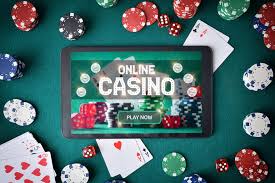
In a fast-paced world where uncertainty often prevails, we all find comfort in our hopes and dreams, represented by metaphors that resonate with our aspirations. One such metaphor is my lucky star my lucky star, a guiding light in the darkness that inspires us to chase our dreams and reach for the impossible. This article delves deep into the significance of the lucky star in our lives, exploring its historical context, personal anecdotes, and its profound implications on mental well-being.
The concept of a « lucky star » has roots in various cultures and is often associated with astrology and celestial navigation. Many ancient civilizations regarded stars as symbols of guidance and destiny. The North Star, for instance, has been relied upon by travelers for centuries. Similarly, when we speak of our lucky star, we are essentially referring to an inner compass that steers us toward our goals and intentions. But how did this concept evolve over time, and why does it continue to resonate with us today?
Historically, lucky stars were believed to influence one’s fate. In astrological contexts, individuals would often seek guidance based on the position of stars and planets at the time of their birth. Each zodiac sign is aligned with various celestial bodies that allegedly have an influence over our personality traits, fortunes, and life paths. For instance, those born under the sign of Leo, ruled by the Sun, are often characterized as bold and charismatic. The belief in a lucky star, therefore, ties into a larger narrative about destiny and the forces that govern our existence.

Beyond astrology, the notion of a lucky star is imbued with personal significance. In our daily lives, we often find sources of inspiration that seemingly align with our desires or ambitions. These can be in the form of mentors who guide us, moments of serendipity that lead to unexpected opportunities, or even mere chance encounters that change the trajectory of our lives. This phenomenon often feels like we are following a star, a guiding light that helps us navigate through challenges and find our way.
Take, for instance, the story of a young artist who, despite facing numerous rejections, continued to paint with fervor. One day, while participating in a local art fair, a renowned critic happens to stumble upon her work. Captivated by her unique style, he promotes her on social media, leading to a whirlwind of opportunities in the art world. The artist often reflects on this moment as a manifestation of her lucky star—a fortuitous encounter that changed her life forever.
The lucky star metaphor extends to concepts of hope and resilience. In challenging times, the idea of having a guiding light can provide a sense of comfort and reassurance. It embodies the intrinsic belief that while the road may be fraught with obstacles, there exists a beacon of hope urging us to persevere. Many individuals facing personal hardships often speak about their lucky stars in the context of overcoming adversity. It becomes a powerful narrative that fosters positivity and strength in the face of difficulties.
Furthermore, this metaphor has psychological implications. Believing in a lucky star can enhance one’s mental health by instilling a sense of purpose. A study published in the Journal of Positive Psychology found that individuals who engage in hopeful thinking tend to experience lower levels of anxiety and depression. By fostering an optimistic outlook, they can better cope with challenges and remain resilient in adversity. Thus, cultivating a relationship with our ‘lucky star’ can function as a psychological tool that empowers us to tackle life’s uncertainties.

The concept has also made its way into popular culture, evident in literature, music, and cinema. Songs like « Lucky Star » by Madonna capture the essence of this metaphor, allowing listeners to resonate with its theme of love and the excitement of possibility. Literature, too, is replete with narratives that explore the idea of following one’s dreams with the belief that a lucky star will guide the way. Characters often embark on journeys of self-discovery, always with the understanding that somewhere out there, guiding forces are at work.
In addition to personal stories and cultural references, discussing the lucky star can lead to introspection. What does your lucky star represent in your life? Is it a person, a belief system, or maybe a specific moment that ignited your passion? Reflecting on these questions allows us to identify and appreciate the myriad influences that shape our journeys and aspirations.
As we navigate through life, let’s take a moment to acknowledge the lucky stars in our lives—the special people who uplift us, the experiences that inspire us, and the moments of serendipity that guide our paths. These elements may seem small, but they contribute to a more profound understanding of our purpose and place in the universe.
In conclusion, the metaphor of my lucky star serves as more than just a whimsical notion; it embodies a deep-seated belief in hope, guidance, and resilience. Whether rooted in history, personal experiences, or cultural references, this concept continues to be a powerful reminder of our inherent potential. So the next time you feel lost or uncertain, remember to look up at the stars, for your lucky star may be guiding you toward new horizons.

No comment